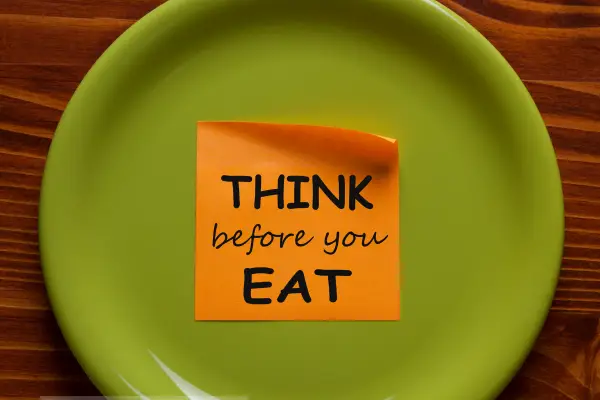Table of Contents
Understanding the Health Benefits of a Plant-Based Diet
Switching to a plant-based diet can significantly improve your health, offering a range of benefits that impact both your physical and mental well-being. This diet focuses on consuming whole, unprocessed foods such as fruits, vegetables, whole grains, legumes, nuts, and seeds. These foods are packed with essential nutrients, including vitamins, minerals, fiber, and antioxidants, which work together to support various bodily functions. One of the most notable benefits of a plant-based diet is its ability to reduce the risk of chronic diseases. By consuming more plant-based foods, you can lower your chances of developing heart disease, diabetes, and certain types of cancer. Additionally, plant-based diets are typically lower in saturated fats and cholesterol, which are commonly found in animal products. This reduction in unhealthy fats can lead to lower blood pressure and improved cholesterol levels, further protecting your heart health.
- Improved Digestion: A plant-based diet is rich in fiber, which is essential for a healthy digestive system. Fiber helps to promote regular bowel movements, reduce constipation, and support the growth of beneficial gut bacteria.
- Weight Management: Another significant benefit of a plant-based diet is its potential for weight management. Plant-based foods are generally lower in calories and higher in nutrients, making it easier to achieve and maintain a healthy weight.
- Enhanced Mental Health: In addition to physical health benefits, a plant-based diet can also improve mental clarity and reduce symptoms of anxiety and depression. The high levels of antioxidants in plant-based foods can help protect brain cells from damage and promote overall cognitive function.
In conclusion, a plant-based diet offers numerous health benefits that can lead to a longer, healthier life. By incorporating more plant-based foods into your diet, you can improve digestion, manage your weight, and enhance your mental health. With these significant benefits, it’s clear that a plant-based diet is an excellent choice for anyone looking to improve their overall well-being.

Environmental Impact of a Plant-Based Diet
Choosing a plant-based diet doesn’t just benefit your health; it also has a profound impact on the environment. The production of plant-based foods generally requires fewer natural resources, such as water and land, compared to the production of animal-based foods. This reduction in resource use leads to a lower carbon footprint, making plant-based diets more sustainable and environmentally friendly. One of the primary environmental benefits of a plant-based diet is the reduction in greenhouse gas emissions. Livestock farming is a significant contributor to greenhouse gas emissions, particularly methane, which is more potent than carbon dioxide. By reducing or eliminating your consumption of animal products, you can directly reduce your contribution to these emissions.
- Water Conservation: Plant-based diets also promote water conservation. It takes significantly more water to produce animal-based foods, especially beef, compared to growing plants. By consuming more plant-based foods, you can help conserve one of the planet’s most valuable resources.
- Land Use: Another critical aspect of the environmental impact is land use. Livestock farming requires vast amounts of land for grazing and growing animal feed, leading to deforestation and loss of biodiversity. Plant-based diets require less land, allowing more natural ecosystems to thrive and reducing the strain on the environment.
- Reducing Pollution: In addition to reducing resource use, plant-based diets also help decrease pollution. The runoff from livestock farms can contaminate water sources, leading to dead zones in oceans and rivers. By consuming plant-based foods, you can help minimize this pollution and protect aquatic ecosystems.
Ultimately, adopting a plant-based diet is one of the most effective ways to reduce your environmental footprint. Not only does it help conserve water and land, but it also reduces greenhouse gas emissions and pollution. By choosing a plant-based diet, you are making a positive impact on the planet and contributing to a more sustainable future for all.
Simple Steps to Transition to a Plant-Based Diet
Transitioning to a plant-based diet can seem daunting, especially if you’re used to a diet rich in animal products. However, with some planning and a gradual approach, it can be a smooth and enjoyable process. Start by incorporating more plant-based foods into your meals, such as adding vegetables to your favorite dishes or replacing meat with plant-based proteins like beans, lentils, or tofu. Over time, you can increase the proportion of plant-based foods in your diet while reducing your consumption of animal products.
- Start Small: Begin by making small changes to your meals, such as having one plant-based meal a day or dedicating a specific day of the week to plant-based eating, like “Meatless Mondays.” This gradual transition allows your taste buds to adjust and helps you discover new, plant-based recipes that you enjoy.
- Explore Plant-Based Proteins: Many people worry about getting enough protein on a plant-based diet, but there are plenty of high-protein plant-based foods available. Beans, lentils, chickpeas, quinoa, tofu, and tempeh are all excellent sources of plant-based protein.
- Stock Up on Essentials: Make sure your pantry is stocked with plant-based essentials, such as whole grains, legumes, nuts, seeds, and a variety of fruits and vegetables. Having these ingredients on hand makes it easier to prepare plant-based meals and snacks.
- Experiment with New Recipes: One of the joys of transitioning to a plant-based diet is discovering new foods and recipes. Explore different cuisines that naturally emphasize plant-based ingredients, such as Mediterranean, Indian, or Asian dishes. Experimenting with new flavors and cooking techniques can make the transition more exciting and enjoyable.
Transitioning to a plant-based diet is a journey, and it’s important to be patient with yourself as you make changes. Remember that every small step you take towards a plant-based diet contributes to better health and a more sustainable environment. By gradually increasing your intake of plant-based foods and finding meals that you love, you can successfully transition to a plant-based diet and enjoy all the benefits it has to offer.

Common Myths About Plant-Based Diets Debunked
Despite the growing popularity of plant-based diets, several myths and misconceptions still surround this way of eating. These myths can sometimes discourage people from adopting a plant-based diet, but understanding the facts can help you make informed decisions. One common myth is that plant-based diets are not nutritionally adequate and lack essential nutrients like protein, iron, and vitamin B12. However, with careful planning and a diverse diet, it is entirely possible to meet all your nutritional needs on a plant-based diet.
Great Taste, No fillers! 7 Mega blends with 85 life changing ingredients and we made it affordable for all- Myth 1: Plant-Based Diets Lack Protein: Many people believe that it’s challenging to get enough protein on a plant-based diet, but this is not true. Plant-based foods like beans, lentils, quinoa, tofu, and nuts are excellent sources of protein. By including a variety of these foods in your diet, you can easily meet your protein needs.
- Myth 2: Plant-Based Diets Are Expensive: Another common misconception is that plant-based diets are more expensive than diets that include meat. While some specialty plant-based products can be costly, a plant-based diet based on whole foods like grains, legumes, and vegetables is often more affordable than a diet heavy in meat and processed foods.
- Myth 3: You Can’t Get Enough Iron: Iron is another nutrient that people often worry about when adopting a plant-based diet. While it’s true that plant-based iron is less easily absorbed than the iron found in meat, you can increase absorption by consuming vitamin C-rich foods like citrus fruits, bell peppers, and broccoli alongside iron-rich foods like spinach, lentils, and tofu.
In conclusion, while there are several myths about plant-based diets, the truth is that they can be nutritionally adequate, affordable, and delicious. By understanding and debunking these myths, you can confidently embrace a plant-based diet and enjoy its numerous benefits. Remember, with careful planning and a diverse range of foods, you can thrive on a plant-based diet and contribute to a healthier, more sustainable planet.










